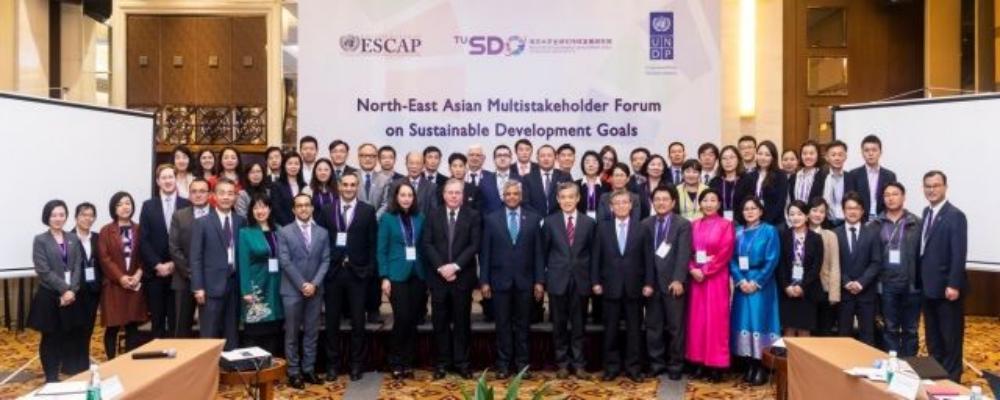
The North East Asia Multistakeholder Forum on SDGs was held on 10-11 October at the Yuyang Hotel in Beijing. The meeting was co-hosted by the Institute for Sustainable Development Goals of Tsinghua University (TUSDG) in collaboration with the United Nations Economic and Social Commission for Asia and the Pacific (UNESCAP) and the United Nations Development Programme (UNDP).
The forum gathered more than 70 officials and experts and scholars from China, Japan, South Korea, North Korea, Russia and Mongolia, as well as heads of relevant international organisations.
On the morning of the 10th, Kilaparti Ramakrishna, Chair of the UNESCAP Subregional Office for East and North-East Asia, Xue Lan, Dean of the School of Public Policy & Management, Tsinghua University (SPPM) and Director of the TUSDG, and Nicholas Rosellini, Coordinator of the United Nations Agencies in China and Representative of the United Nations Development Programme (UNDP) in China, were in attendance to deliver the opening remarks.
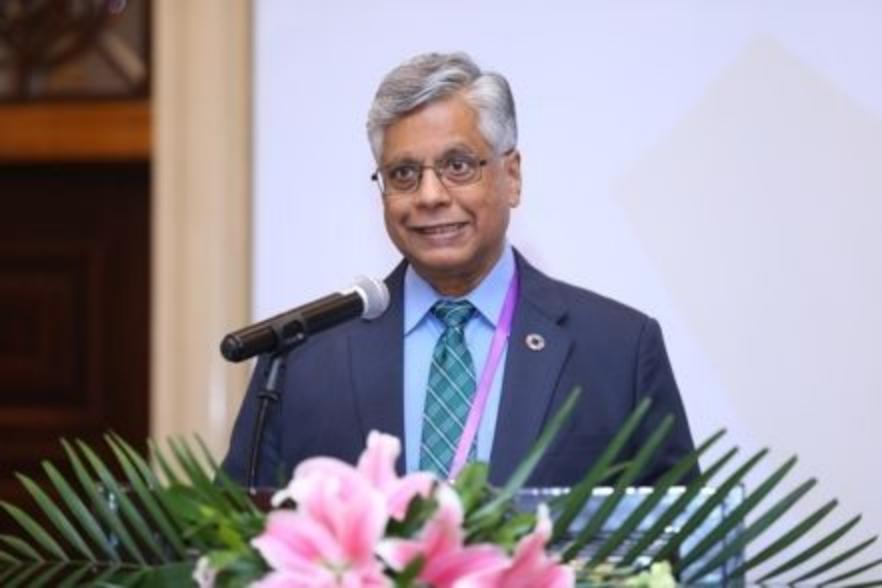
Ramakrishna noted that the SDGs are a global and transformative goal, and that the Northeast Asian region plays an important role in advancing global sustainable development.
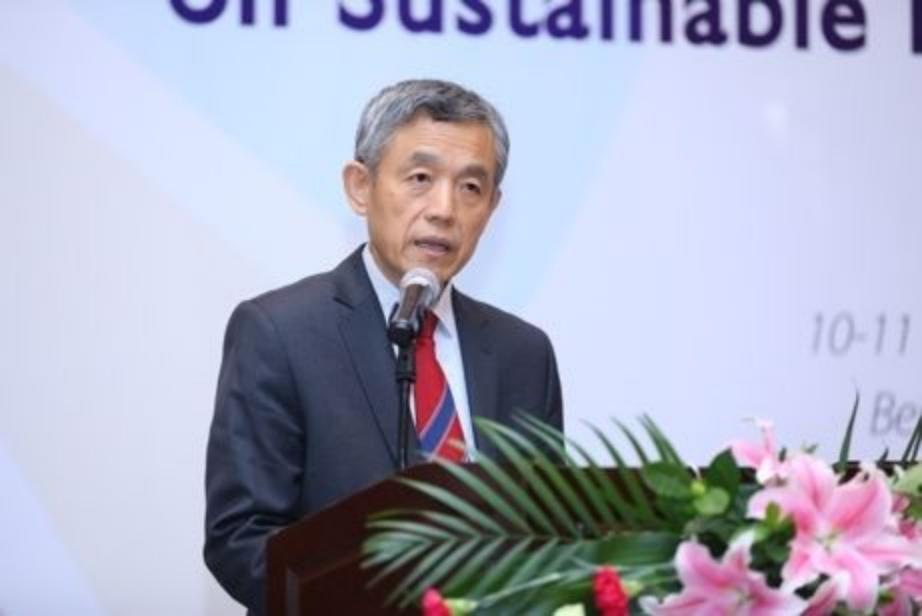
Xue Lan emphasized the importance of the practical implementation of the SDGs and the complex and varied challenges currently faced in both implementation and assessment.
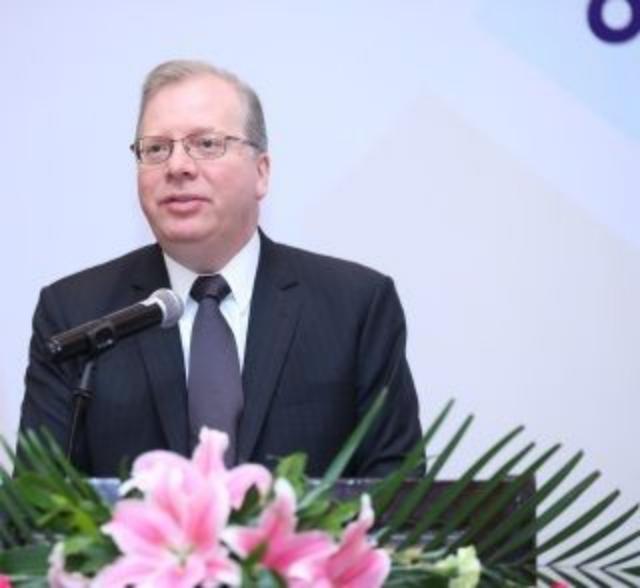
Rosellini suggested focusing on the quality of development and its inclusiveness and universality, and comprehensively promoting the implementation of the 2030 Global Agenda for Sustainable Development from three perspectives, namely focusing on on-the-ground implementation, establishing broad partnerships and innovating modes of resource integration.
After the opening ceremony, experts and scholars from various countries conducted in-depth discussions and exchanges on the current status and future trends of the 2030 Agenda for Sustainable Development at the global, regional and subregional levels, and reported on and analysed the achievements and challenges faced by countries in the process of sustainable development.
Riccardo Mesiano, Sustainable Development Officer, Department of Environment and Development, ESCAP, presented the roadmap for the Asia-Pacific region developed by ESCAP and expressed the hope that countries would help each other to promote the implementation and assessment of the goals.
Li Ming, Sustainable Development Goals Programme Leader of UNDP, pointed out that UNDP attaches great importance to the implementation and promotion at the local level - an important foundation for the achievement of the global SDGs - and that UNDP can link local development with the global goals, utilizing its expertise and global network to tailor its approach to the current state of development and the needs of different localities.
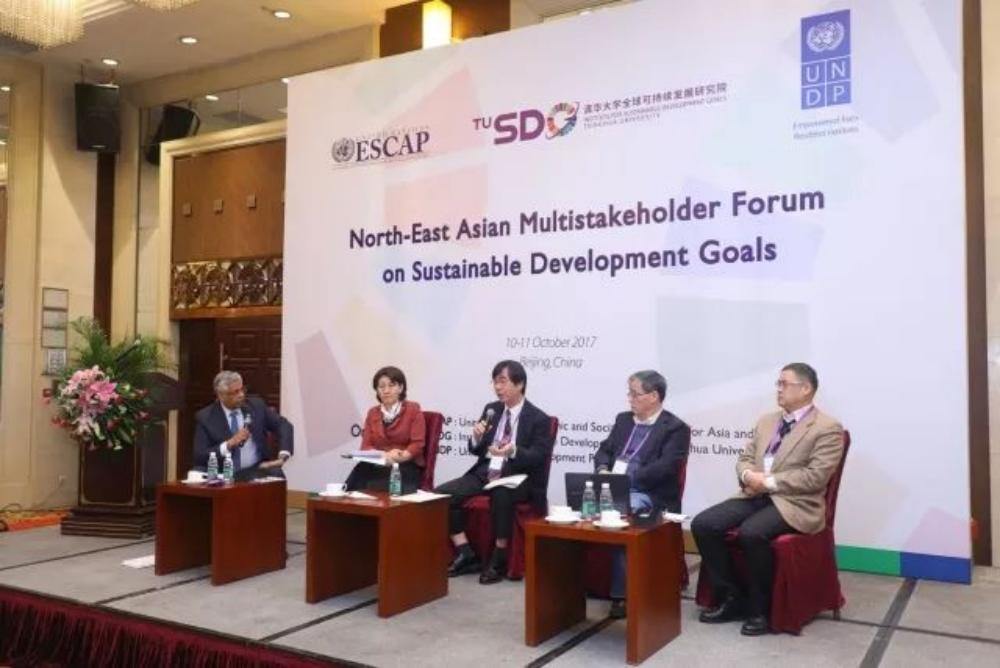
High-level Meeting on Overview of Implementation of Sustainable Development in Northeast Asia Region
Expert representatives from various countries discussed the implementation profile of the SDGs in the Northeast Asia region.
Oyun Sanjaasuren, former Minister of Foreign Affairs of Mongolia, former Minister of Environment and Green Development, current Member of Parliament, and Chair of the Global Water Partnership (GWP), introduced the role and challenges of the GWP - e.g., the public sector should be investing in green buildings, but the challenge is how to scale up and replicate them, and the entry point to address this is for governments to shift their thinking about how to design and build appropriately.
Mori Hideyuki, President of the Institute for Global Environmental Strategies (IGES), Japan, said that China is at the forefront of the push for sustainable development, and that Japan has a national development plan in place, stressing the need for deregulation and decentralisation to facilitate collaborative stakeholder dialogue.
Soogil Young, former Ambassador of the Organization for Economic Co-operation and Development (OECD) in Korea and now the UN Sustainable Development Solutions Network (SDSN) representative in Korea, highlighted three issues - namely, ‘Leaving No One Behind’, energy and climate change. He suggested that Korea should establish a bottom-up, civil society-governed government management structure, along with science-based decarbonisation efforts and increased sharing of experiences among regional countries.
Pan Jiahua, Director of the Institute for Urban and Environment Studies, Chinese Academy of Social Sciences (CASS), proposed three emphases. The first was population growth. Second, countries should treat the 17 targets in an integrated manner, with each stakeholder cooperating and coordinating. Third, targeting. Prioritize the implementation of the goals, addressing the important issues first and alleviating vulnerable groups.

